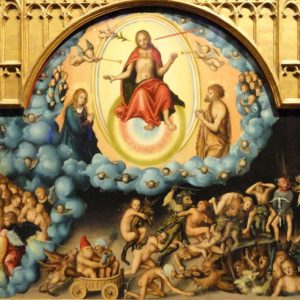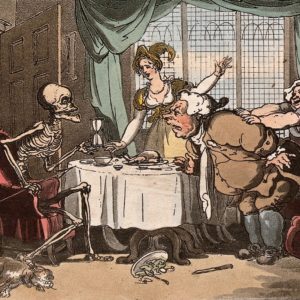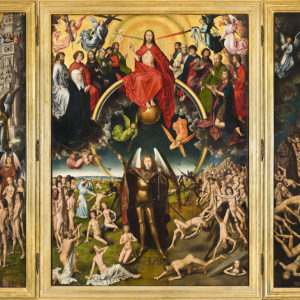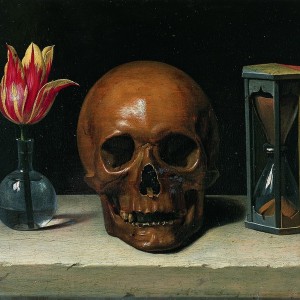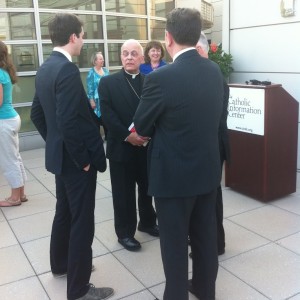Pope Francis talks about how “Our infinite sadness can only be cured by an infinite love.” But if we freely reject God’s infinite love, we’re left only with our own infinite sadness. Here’s how to harmonize the idea of hell – an eternity of suffering apart from God – with the idea of an all-good and loving God.
Tag: hell
God & Hell: God or Hungry Ghosts
Perhaps everything I said yesterday sounds depressing: we go through life constantly craving the good, and yet none of the goods of this life satisfy that craving. And you’re right. If atheists are right, and this is all that there is, reality really does seem to be a sick joke. And so we have to choose in what we believe: God or hungry ghosts?
God & Hell: Our Infinite Hunger
Traditionally, the four Sundays of Advent were preached on the “Four Last Things” (death, judgment, heaven, and hell), so it’s a good time to ask: Is the idea of hell – an eternity of suffering apart from God – compatible with the idea of an all-good and loving God? I think that this is one of the strongest arguments against traditional Christian doctrine. I would argue that it is, but that to see this we need to see something about ourselves, and about God in relation to us, before we can see why. That’s what I’ll be exploring over the next four days. I’ll be making four major points:
1. We have an infinite craving for the good. Everything we do is in pursuit of the good;
2. Because no earthly goods are capable of satisfying our hearts, life is cruel… unless there is a good capable of satisfying the infinite longings of our hearts.
3. God, as infinite and perfect good, is the only one who can fill our hearts.
4. Eternity without God would necessarily be hellacious.
Let’s start with the first of these points…
Reason #8 to Reject the Reformation: Heterodoxy
While not all of the causes of the Protestant Reformation were theological, some of them undoubtedly were. So St. Edmund Campion, in the eighth of his Ten Reasons against the Reformation, addressed some of these. Specifically, he considers certain “impossible positions” that the Reformers held “on God, on Christ, on Man, on Sin, on Justice, on Sacraments, [and] on… Continue reading Reason #8 to Reject the Reformation: Heterodoxy
Remembering You Are Dust, in the Hope of the Resurrection
Yesterday, as we went up for ashes, there’s a good chance that as he applied them to our foreheads, the priest said, “Remember, man, that you are dust, and to dust you shall return,” a reference to Genesis 3:19. A friend of mine asked how we, as Catholics, should understand this, in light of our belief… Continue reading Remembering You Are Dust, in the Hope of the Resurrection
Son Rise Morning Show: The Problems of Free Will, Evil, and Hell
At 8:50 (Eastern) this morning, I’m going to be on Son Rise Morning Show, talking about the problems of free will, evil, and Hell. This morning, you’ll only be able to hear me online (unless you happen to live in Cincinnati). So if you want to listen to it live, go to http://www.sonrisemorningshow.com/, and click the “On the Air: Click to… Continue reading Son Rise Morning Show: The Problems of Free Will, Evil, and Hell
The Problems of Free Will, Evil, and Hell
Today, I want to talk about probably the three most important interrelated problems facing Christianity: the problem of free will, the problem of evil, and the problem of Hell. These are not only the issues which drive people away from Christianity, but they’re issues which have divided even Christians, with some Christians denying that free… Continue reading The Problems of Free Will, Evil, and Hell
How Did the Puritans Become Unitarians?
One of the strangest religious transitions in American history is that the Puritan congregations in New England became Unitarian Universalists. It would be hard to find a religious group who cared more about getting doctrine exactly right than the Puritans, yet within the span of only a few generations, they’d devolved into something unrecognizable as either… Continue reading How Did the Puritans Become Unitarians?
